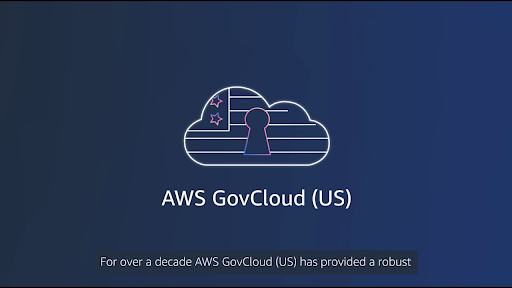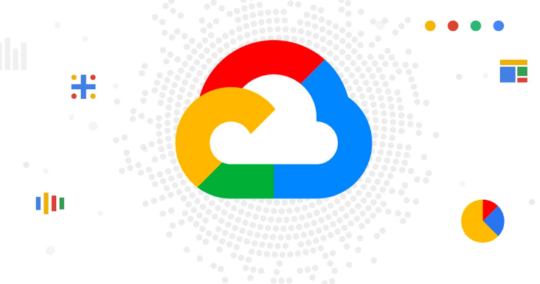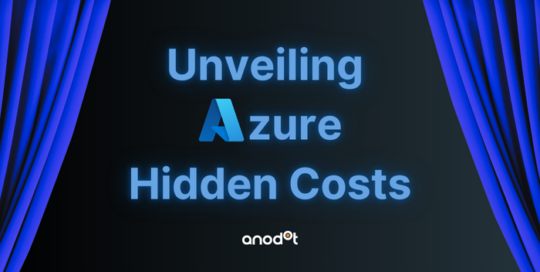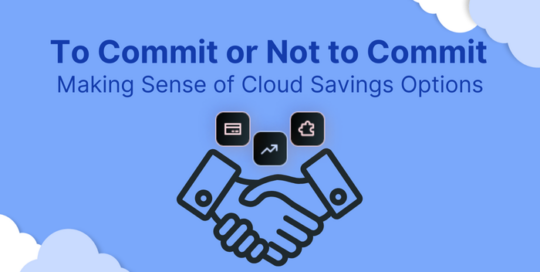If you’re ready to leap to the government cloud, you’re likely looking back and forth between Amazon and Microsoft, wondering which is the best (and safest) bet. We’ve got you covered!
Learn all you need to know from our cloud experts about which government cloud offering will work best for you – and it may come as a surprise, but there are other options outside of AWS and Azure… get into the details below!
In this article:
- What is AWS GovCloud?
- What is Azure Government?
- AWS GovCloud vs Azure Government – which is best?
- What are other major government cloud providers?
- Should you switch to a government cloud service?
- Considering AWS GovCloud? Stay 100% Secure and Gain Multicloud Visibility with Anodot
What is AWS GovCloud?
First things first, AWS GovCloud (U.S.) is a cloud offering designed for the needs of the U.S. federal, state, or local government. AWS GovCloud enables users to adhere to conditions like ITAR (International Traffic in Arms Regulations), FedRAMP (Federal Risk and Authorization Management Program), and DoD (Departments of Defense) Cloud Computing Security Guide (SRG) Impact Levels 2, 4, and 5.
Designed to securely host data and regulate workloads by meeting the strict compliance and regulatory requirements of the U.S. government agencies, AWS GovCloud is not just an option, but a top choice in the market to keep user data 100% secure. Its robust security features will give you peace of mind about the safety of your data.
AWS GovCloud regions
AWS GovCloud offers specific regions geographically isolated from other AWS areas, ensuring all data is protected from anything ranging from natural disasters to downtime during updates.
There are two GovCloud regions, U.S.-West and U.S.-East. Each region operates independently to offer the highest levels of security, data locality, and compliance.
Though AWS GovCloud houses the data only within specific regions, it can be accessed globally so long as the user is a vetted U.S. entity.
AWS GovCloud compliance
AWS GovCloud supports FedRAMP JAB P-AT (Joint Authorization Board Provisional Authority to Operate) at a High baseline. This government-wide program ensures you get all the security you need while monitoring cloud performance.
Other compliance standards supported include:
- IRS (Internal Revenue Service) Publication 1075
- EAR (Export Administration Regulations)
- DOJ (Department of Justice)
- CJIS (Criminal Justice Information Systems)
- Security Policy FIPS (Federal Information Processing Standard) Publication 140-2
What is Azure Government?
Azure Government is Microsoft’s answer to AWS CloudGov. Similar to CloudGov, Azure Government is a cloud service designed for U.S. government agencies and their related partners. Azure Government offers a cloud entirely dedicated to government cloud to ensure maximum security and to reduce downtimes.
It also uses a data center strategy similar to AWS GovCloud, with Azure Government isolating its data centers and networks to select areas of the U.S. via regional pairing. You can choose from Regional Pair A (Arizona and Virginia) or Regional Pair B (Texas).
AWS GovCloud vs Azure Government – which is best?
AWS GovCloud and Azure Government have both been designed to do the same thing: provide cloud services made for government agencies. But not all things are created equal… and we’re here to walk you through the biggest pros and cons of each service to make it easier for you to pick the best offering for your needs.
Before we get into all of the meaty details, keep this important thing in mind: if you’re already using Azure or AWS, the cons of cloud migration are unlikely to outweigh the pros of starting at a new managed service provider (MSP).
First, the main things these cloud services have in common:
- Both offer physically isolated databases located in different regions of the U.S. for maximum natural disaster and redundancy protection.
- Both meet compliance standards for a wide range of requirements (ex: FedRAMP, IRS 1075, etc.).
- Both offer AI, IoT, analytics, and cloud security services.
Here’s how the two differ in terms of pros and cons:
AWS GovCloud and Azure Government also differ in terms of how they charge you for cloud services. Where AWS GovCloud has on-demand and reserved pricing models the same as traditional AWS cloud services, Azure pricing has four tiers to choose from for a monthly support plan (Basic, Developer, Standard, and Professional Direct).
AWS GovCloud pros
AWS GovCloud has been on the market longer than Azure Government. This comes with a laundry list of pros, including:
- AWS offers more GovCloud services than Azure Government.
- GovCloud has more customers, which means they’ve addressed more GovCloud-related issues.
AWS GovCloud cons
The main AWS GovCloud cons are:
- Poor feature parity between commercial AWS cloud and AWS GovCloud (AWS ChatBot doesn’t exist in GovCloud yet).
- Additional costs and latency when transferring data between GovCloud and non-GovCloud accounts.
- Access to both services is restricted to U.S. individuals who comply with U.S. export control laws.
Azure Government pros
The following are the pros you can expect from Azure Government:
- Azure Government is a completely separate section of Microsoft Azure to ensure maximum security.
- Easy integration with other Azure services.
As we’ve mentioned above, if you’re already working on Microsoft, you’re likely best off staying on Azure Government since you won’t have to worry about migration.
Azure Government cons
Azure Government’s biggest con is its lack of experience. This means that it:
- Lacks the extensive cloud services that AWS offers, though.
- Has a weaker market share and adoption rate, though it has been gaining traction.
- Is slower to receive updates due to weaker market share and deprioritization.
While AWS GovCloud and Azure Government are the leading government cloud providers, it’s smart to consider other options before making a final decision. These providers may offer unique features or better suit your organization’s specific needs.

Limor Tepper
Head of Product, Anodot
Limor leverages her expertise in product management and telecom to drive product innovation and development.
TIPS FROM THE EXPERT
1. Leverage government cloud-specific discounts
Both platforms often have special government pricing or discounts for long-term contracts and specific services. If you anticipate heavy usage of virtual machines (VMs) or storage, look into reserved instances or savings plans to reduce long-term costs.
2. Utilize multi-region redundancy
Both platforms offer geographically isolated regions. Set up workloads in multiple regions to ensure disaster recovery and reduce downtime. AWS GovCloud offers U.S. East and West regions, while Azure Government provides Regional Pairing options. Choose regions that provide optimal latency and disaster recovery for your operations.
3. Optimize service usage to minimize costs
AWS GovCloud and Azure Government tend to charge more for their services compared to their commercial counterparts. Regularly audit your cloud resources, decommission unused instances, and automate shutdowns for idle VMs to prevent unnecessary spending and optimize cloud costs.
4. Focus on long-term contract flexibility
AWS and Azure both offer flexible contracts for government cloud users, but committing to a 1 or 3-year reserved instance plan can save you significantly. However, ensure the resources you lock in for the long term are necessary and future-proof, as usage changes over time.
5. Ensure robust monitoring and visibility tools
When managing multi-cloud or government cloud environments, use advanced monitoring tools like Anodot to gain full visibility into cloud spend, usage trends, and potential cost inefficiencies. Continuous monitoring helps avoid unexpected costs and maintains operational efficiency.
What are other major government cloud providers?
Still unsure if you want to use either AWS or Azure services? No sweat. There are plenty of other options. Amazon launched their first government cloud option thirteen years ago and Microsoft eight years ago, so there’s been time for other providers to catch up.
The best place to find other options is the FedRAMP website, which provides a list of compliant and authorized vendors and services. These vendors have been heavily vetted by technical and security reviews and audited by accredited third-party assessors before they were granded the right to operate.
We’ve listed the other top government cloud providers below.
Something you should know is that all of these providers are using the same data hosting system as their commercial offerings. The biggest difference between the government cloud offerings versus the commerical cloud offerings for these providers is the added level of security. Otherwise, these providers are all known for their trustworthiness and their tailor-made products.
IBM SmartCloud for Government
IBM’s SmarCloud for Government allows for improved communication, encrypted mail services, and BlackBerry-specific collaborative document creation and customer support.
IBM SmartCloud also makes working in a multi-cloud environment easy, enabling you to integrate variations of other cloud-enabled IBM or Lotus products.
Salesforce Government Cloud
Salesforce launched their government cloud solution back in 2014, so they’ve had plenty of time to perfect their service offerings. Favored by government enterprises like the Department of Defense and the Bureau of Engraving and Printing, you’d be hard-pressed to go wrong with Salesforce, as it’s one of the most popular government solutions on the market.
Google Distributed Cloud Host (GDCH)
GDCH (Google Distributed Cloud Hosted) is Google’s government user infrastructure offering. As opposed to AWS GovCloud or Azure Government, GDCH offers a private cloud solution that a government customer can host on their own premises.
GDCH is designed for a bit of a different purpose. It focuses on providing data residency, operational continuity, and soverentiy. Users will have access to standard Google Cloud services and scalability through the Google Anthos hybrid cloud solution.
Should you switch to a government cloud service?
Now that we’ve covered all of the different government cloud service providers and you have a better idea of which company might be best for you, it’s time for the real question: is it worth you even starting with a government cloud service in the first place?
As much as we hate to say it… it depends.
If you’re a government agency, you certainly don’t need to use AWS CloudGov or Azure Government or another government cloud serivce. You can stick to the standard cloud or multi-cloud experience (it’s usually a little cheaper!) and not have to worry about migration. Since most government cloud services require separate account IDs and user access credentials and, in the name of security, can make it very difficult for you to add new users to the cloud platform, things are often slow-moving and inconvenient.
With that said, if you’re looking for support for enterprise-sized applications (ex: Oracle, SAP) or workloads, or need help with storage, disaster recovery, or hgh performing computing, or even if you just want an additional boost for your cloud security, government cloud services might appeal. Government cloud services mean you don’t ever have to worry about data leaks, and you can manage all of your cloud user and customer information with that peace of mind.
If you are ready to bite the bullet of transition to a government cloud service, you’ll just need to be prepared for the migration, which can seriously inflate your bills.
We do have good news on that front though, because there’s an easy way you can address inflated cloud service prices.
Considering AWS GovCloud? Stay 100% Secure and Gain Multicloud Visibility with Anodot
AWS GovCloud offers a dependable solution for securely storing classified US government and federal information. However, when operating in multi-cloud environments, achieving complete visibility of all your activities in a single location can significantly reduce the back-and-forth involved in calculating costs and gaining insights into your expenditures.
Using Anodot, you can solve the ever-worsening mystery of why is my cloud budget so high? Our dashboard is able to integrate your cloud data like AWS, GCP, and Azure,onto one dashboard. You can get up to a 24-month lookback with data down to the hour, making it easy to spot everything from season trends to all of your cloud spend inefficiencies.
With Anodot you’ll be able to visualize where costs are generating wether they be in the public or government controlled cloud.
Want a proof of concept? Talk to us to learn how much you can save with Anodot’s tools.










